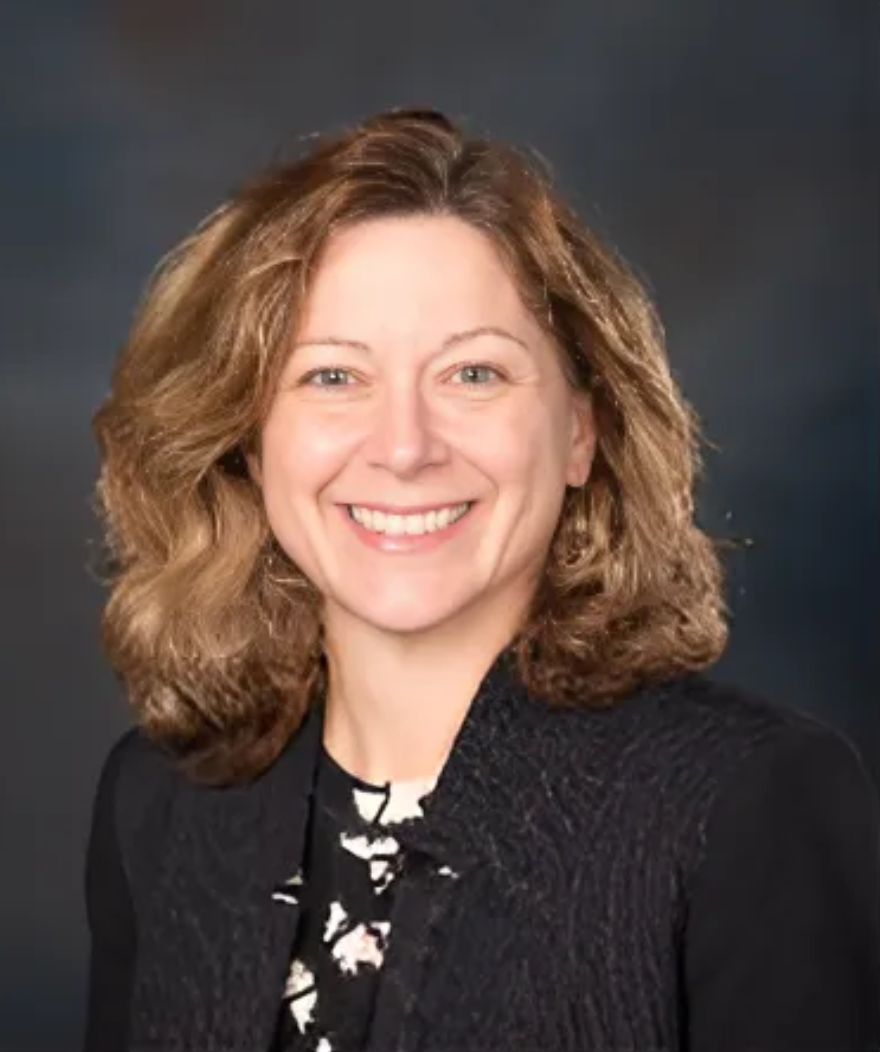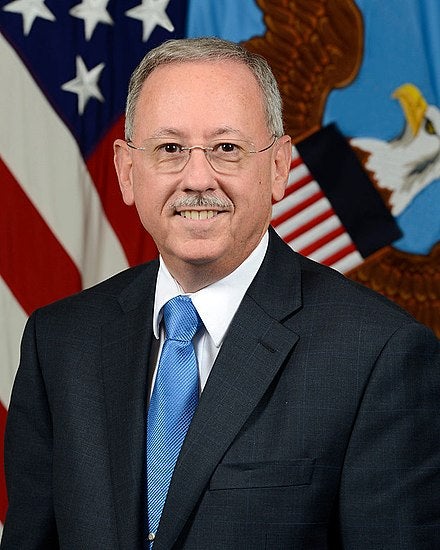Title: Q&A With our 2025 Practitioners in Residence (PiRs)
Vivian Walker & David Trachtenberg
What is the single most important piece of advice you would give to current students for making the most of their time in the program to prepare for a career in public policy?
This will seem counterintuitive, but I urge you to benefit from Georgetown’s offerings by taking as many courses outside your program concentration as possible. If you are a Europeanist, take a course in Arab and Islamic, Asian, or Latin American Studies. If you are an economist, take a course in art and museum studies. Take a finance or marketing class in the MBA program no matter your concentration. Explore courses in learning design and technology. And so on. Breaking out of your concentration will refresh you as a thinker, provide you with new ways of framing the issues, and, who knows, maybe even reveal or unleash a new passion or expertise. Allow yourself to be a student in the broadest sense of the word—one who “studies, investigates, or examines thoughtfully.” Your future professional self will thank you. Finally, allow yourself to change course. I received an excellent education in Georgetown’s undergraduate SFS program but decided that I was truly meant to teach great books. Then, nearing completion of a PhD in English, I realized I was meant to be a diplomat. After 25 plus years of a wonderful career in the FS, I retired to teach and write. Then I returned to State to serve in an advisory capacity. Looking back now, I can see how each experience informed and enabled the next, allowing me to build a career at the nexus of theory and practice.

I would offer several pieces of advice, but perhaps the most important is to take full advantage of the opportunities that the MSFS program provides to engage leaders and practitioners in international affairs whenever possible. This means not only attending MSFS-sponsored events but engaging proactively with academic advisors, professors, and others in the MSFS community to seek out opportunities to meet with and learn from those experts who have achieved success in their respective fields. Washington, D.C. is an excellent place to be for those seeking a career in public policy. Get to know your professors, attend off-campus events with thought leaders and policy makers, be open to new ideas, understand the arguments of those with whom you may disagree, and treat everyone with the respect they deserve, consistent with the values that Georgetown represents.

Building relationships are essential to success in our students’ future careers in foreign service. How did you build a network, especially early on in your career?
Bottom line, diplomacy is essentially about relationship building—creating and growing networks is in the DNA of the job. That said, my early networking experience is a bit anomalous. I joined the foreign service right out of a doctoral program in English. The networks I built in grad school had no direct bearing on my career. But there were indirect benefits. Having come out of an environment focused on learning and teaching, I looked for—and found—great mentors in the FS. My grad school experience was all about understanding how others viewed/interpreted the world, so early on I made a point of building relationships with my local colleagues and contacts to better comprehend their values and interests —and the cultural context that shaped them.

The old adage “It’s not what you know but who you know” has a ring of validity to it. But what you know is just as important as who you know. Expanding your substantive knowledge through the MSFS program and tapping into the vast alumni resources that are available to you can help you build a valuable academic and professional support network that expands your educational and professional horizons. I was fortunate that the Georgetown MSFS program allowed me to interact with key professionals in my chosen career field. In addition, I was able to do some work for some well-respected and accomplished thought leaders while still a student in the program. This helped me to build a solid network.

Throughout your career, how important has specialization within your fields of foreign service been to your success? How can students best identify and build their own regional or thematic niches?
Foreign Service officers are required to be generalists, able to carry out the pursuit of multiple foreign policy objectives in diverse countries, contexts and cultures. Specialization comes with the assignment—beginning with language and area studies, and then doing the work on the ground. You don’t need a particular regional or thematic niche to join the foreign service. You do need, however, intellectual curiosity, strong critical thinking and analytical abilities, the ability to write well and quickly—in other words, all the skills that you are currently cultivating at Georgetown. In fact, Georgetown’s MSFS program offers the perfect microcosm of the foreign service experience—providing you with broad thematic expertise in politics, economics, public policy, history, and social studies while allowing you to immerse yourself in the experience of specific languages, cultures, and histories. In my case, I joined the FS as a stone cold expert on late Victorian autobiographical narratives. Trust me when I say that none of that mattered beyond my dissertation committee. In the first decade of my career, I moved from North Africa to Haiti to Kazakhstan. I learned Arabic, Creole, and Russian, saw the decline of European influence in the Maghreb, watched a coup d’etat unfold and insecurity spread across Haiti, and witnessed the rocky emergence of democratic institutions in the new countries of Central Asia. The common denominator of these vastly different experiences was that I could listen and learn, ask good questions, tolerate ambiguity, assimilate information quickly, and thrive on teamwork and the sense of a shared mission with my colleagues.

Specialized expertise in one’s chosen field can often be an important discriminator when it comes to employment. Both public and private sector enterprises look for specialized talent to fill critical niches. My areas of specialization in the defense and national security arena proved immensely useful as I sought career opportunities. My initial government position was on the staff of the House Armed Services Committee. Learning about the legislative process firsthand and gaining expertise on substantive defense policy matters helped position me for a senior level appointment at the Pentagon. I often tell students interested in government careers to consider working on Capitol Hill in order to gain unique understanding and experience that can lead to future opportunities elsewhere in government. Students should take what they are passionate about and seek to translate that into professional opportunities that align with their interests. Detailed knowledge and expertise in a subject can open doors one may never have known existed.

As a Foreign Service program, many of our students want to join the US Foreign Service. Do you have any tips, recommendations, and encouragement you would give to a student with goals of joining the foreign service?
See my response to the first question above. In other words, be a student in the truest sense of the word—one who studies, investigates, and examines thoughtfully. Read everything. And I mean everything…not just the Economist and Foreign Affairs and weighty tomes on the evolution of foreign policy or developmental economics but fiction and art and social commentary. Compel yourself to see the other side of an argument or issue. Confront intellectual discomfort and competing value systems and learn from them. Yes, I know—this is generic advice. But the truth is, beyond the exam and assessment processes, the background checks and health clearances, there is no one path into the foreign service. Every FSO I have ever met has had a unique origin story. The one common denominator is an abiding curiosity about the worlds beyond our national borders, and a commitment to service.

What lessons did you learn about leadership and management from your time as the Deputy Under Secretary of Defense for Policy, and how can aspiring professionals develop these skills?
Leadership and management skills are essential for senior leaders in any organization. This is especially true for large organizations like the Department of Defense. Anyone seeking to lead an organization should understand that organization’s culture. Having served previously in the Office of the Under Secretary of Defense for Policy in the George W. Bush Administration, I was familiar with the organization and culture of the Policy shop when I was nominated and confirmed as the Deputy Under Secretary in the Trump Administration. Those seeking senior positions of responsibility should also be able to communicate guidance and direction clearly, so effective written and verbal communication skills are essential. In addition, leaders should be willing to advocate on behalf of the team they lead. As the Deputy Under Secretary of Defense for Policy (and initially the Acting Under Secretary), I recognized that personnel and workforce issues are among the more challenging ones to address. To operate effectively, I sought to instill confidence in our organization’s mission and actions through regular meetings with my staff, providing feedback and encouragement, and by recognizing their efforts appropriately. I could not have done my job effectively without the support and expertise of the many political appointees and career civil servants whose selfless and dedicated efforts reflect the true spirit of public service.

As an MSFS Alumni, how did your experience in our program shape your career trajectory? What aspects of the program were most impactful for you? What recommendations do you have for our MSFS class to maximize our time on the Hilltop?
My time in the MSFS program opened career doors for me in numerous ways. It allowed me to interact with well-known and accomplished professors who were helpful in offering advice and sharing their experiences. I was able to engage with some of these professors in later life as my own professional career advanced. Most impactful for me was the opportunity to engage directly with experts in my chosen field by attending events and meeting respected professionals. I recommend every student take maximum advantage of the opportunities the MSFS program presents to engage and interact with expert practitioners both on and off campus.
